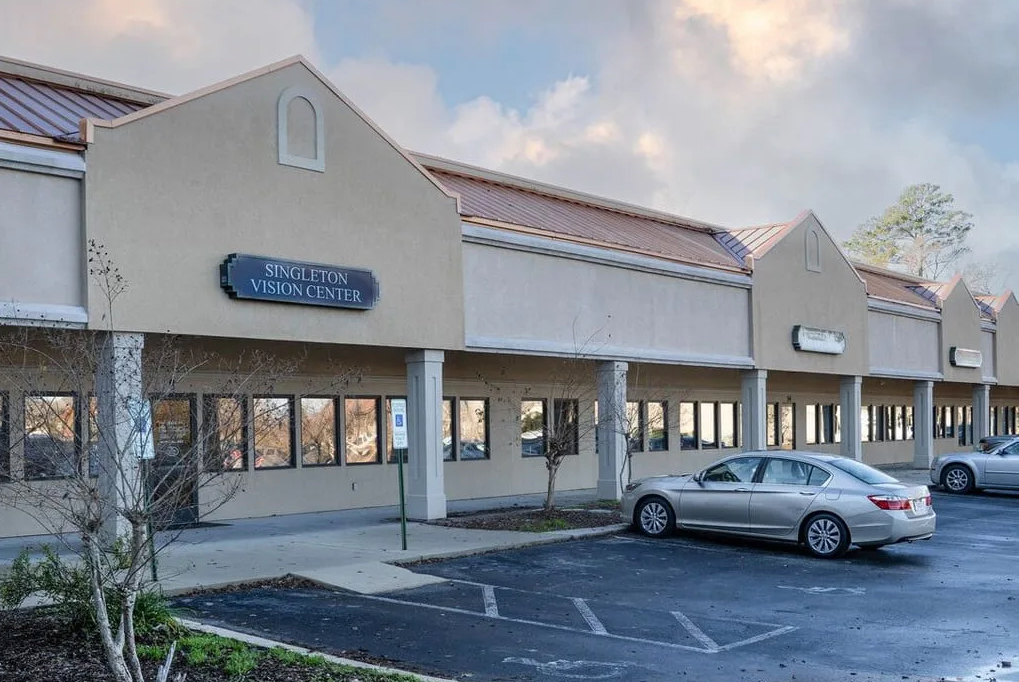Four years have passed since a New Bern eye surgeon first challenged a state law that blocks him from providing procedures to save his patients’ time and money. Now the case sits with North Carolina’s highest court.
In the months ahead, state Supreme Court justices will decide whether the law — known as certificate of need — violates the state Constitution.
Oral arguments on April 17 offered no clear picture of the court’s pending decision. Even justices who appeared skeptical of the law’s merits signaled that state courts might not serve as CON critics’ proper venue. Skeptics might need to address the General Assembly instead.
State law requires health care providers to secure a certificate of need before building new facilities, adding hospital beds, or buying major medical equipment. The process of securing a CON takes time and money. Competitors can tie up CON decisions in lengthy court battles.
In Dr. Jay Singleton’s case, the CON law prevents him from performing most eye surgeries at his own Singleton Vision Center. Instead he must perform them at CarolinaEast, a nearby hospital with the region’s only CON for an operating room.

Not only do Singleton and his patients have to schedule surgeries at times convenient for the hospital, the cost is higher. Singleton could perform cataract surgeries for $1,800 at his business. The facility fee alone at CarolinaEast reaches almost $6,000, according to his state Supreme Court appeal.
CON restrictions on Singleton’s work violate three provisions of North Carolina’s constitution, according to his complaint. One bans monopolies. Another bans “exclusive emoluments,” a type of profit or advantage granted by the government to a single person or business. The third bans government from depriving people of their property “but by the law of the land.”
“Our constitution draws lines the legislature can’t cross,” argued Josh Windham of the Institute for Justice during the Supreme Court hearing. “No monopolies. No special privileges to provide private services. No laws that restrict liberty unless it’s reasonably necessary to protect the public. No exceptions.”
The CON law “crosses these lines,” Windham explained. “It grants a single private hospital, CarolinaEast, an exclusive right to have an operating room in his area. That’s a monopoly. And even if a CON one day became available, Dr. Singleton alleged that forcing him to get a CON is not reasonably necessary to protect the public.”
“It increases costs, reduces access to care, and harms the very patients it’s supposed to help, and that violates the law of the land,” Windham added.
On the other side of the argument, Nicholas Brod of the state Department of Justice defended CON. Brod reminded the state Supreme Court that legislators enjoy “broad deference on disputed matters of economic policy.”
Brod distinguished Singleton’s case from other disputes that have reached the state’s highest court.
“I just don’t think this law, which in this case is regulating the entry of someone who wants to perform surgery on people’s eyes, has anything to do with the kind of licensing laws that this court struck down regarding photographers or dry cleaners or tile layers,” Brod argued. “I just think we’re in a completely different constitutional universe. Health care is different.”
Justice Trey Allen summarized Brod’s plea for legislative deference. “Isn’t your point that if it’s debatable, we have to uphold the law, that this is an incredibly complex area of the law, and courts aren’t really equipped to determine what the impact would be on the availability of care if the law is struck down?”
Justice Richard Dietz jumped into the debate moments after Allen’s question. Dietz suggested Singleton might be able to rebut state arguments for CON restrictions.
“What if they came in with a bunch of evidence that showed in other states that rural hospitals — when they started having competition — were not impacted in any way?” Dietz asked. “And, in fact, it had the opposite effect. The increase in that health care meant people would start going to the hospital more, and they actually made more money.”
“At the same time, they came up with some evidence during discovery that powerful lobbying groups really profited from the system the way it exists now, and so they were able to prove that actually this law seems to be really about cronyism,” Dietz continued. “Doesn’t that fall directly into the heart of what … the framers wanted the monopolies clause to prohibit?”
Justices will wrestle with Singleton’s constitutional claims in the months ahead. His patients must wait to learn whether the court upholds a law that costs them time and money.
Mitch Kokai is senior political analyst for the John Locke Foundation.